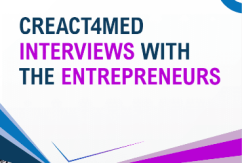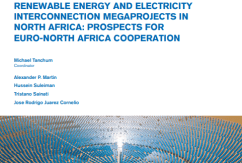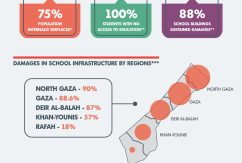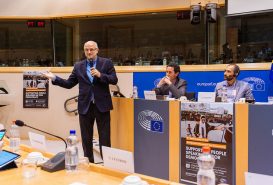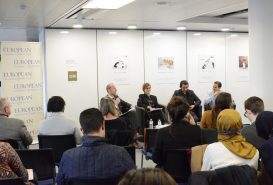Support to the European Endowment for Democracy
Brief Description
Supports journalists, bloggers, non-registered NGOs, trade unions, loosely organised or fledgling pro-democratic movements and political movements (including those in exile or from the diaspora), in particular when all of these actors operate in a very uncertain political context.
Countries covered: Initially, the Neighbourhood region (Algeria, Armenia, Azerbaijan, Belarus, Egypt, Georgia, Israel, Jordan, Lebanon, Libya, Moldova, Morocco, the Occupied Palestinian Territories, Syria, Tunisia and Ukraine)
Objectives
The aim of this action is to support the core functioning of the European Endowment for Democracy (EED) in the European Neighbourhood as an actor to foster and encourage democratisation and deep and sustainable democracy in countries in political transition and in societies struggling for democratisation.
The EED responds to a context where actors for change in societies struggling for democratisation sometimes face obstacles in accessing EU funding. The EED aims to add value by offering a dedicated rapid and flexible funding mechanism for beneficiaries who are not supported, are insufficiently covered or face difficulties in obtaining support from EU financial instruments, in particular for reasons of legal personality, administrative requirements or eligibility criteria. Beneficiaries may include journalists, bloggers, non-registered NGOs, loosely organised or fledgling pro-democratic movements and political movements (including those in exile or from the diaspora), in particular when all of these actors operate in a very uncertain political context.
What Does It Do
The EU contribution to the EED will support its establishment, functioning and own activities over the first three years of life of the EED. Therefore, in addition to expenditures related to human resources and administrative costs, the EU contribution will support the organisation of seminars, studies, conferences, publications, networking events, workshops, trainings and visibility events.
The Endowment is not a European instrument; it takes the form of a private law Foundation under Belgian Law, governed by its own Statute and governing bodies. However, the EED’s statute ensures that it will complement existing EU cooperation instruments by supporting key political players in fostering democratic transition through rapid and flexible assistance, avoiding duplication and ensuring coherence and added-value with the activities carried out under EU financial instruments. These include, in particular, the European Instrument for Democracy and Human Rights (EIDHR), the Instrument for Stability (IfS) and the European Neighbourhood Instrument (ENI).
The added value of the EED can be seen in two specific fields. First, its target group: those facing difficulties in obtaining support from EU financial instruments. Second, the way it will act: delivering its support in a more rapid and flexible manner than the EU is allowed to do given its rules and procedures. All the activities of the Endowment are carried out on a not-for-profit basis and implemented in a spirit of transparency, pluralism and in a non-partisan manner.
Actions in brief
- EU support enables the Endowment to function so that it will be able to deliver the following with its own additional resources:
- Financial support for the activities of civil society organisations such as political foundations and networks of foundations which can qualify as implementing partners;
- Direct financial support to beneficiaries, including: project activities, material support, operating costs, visiting fellowships (including through a European invitation programme for young people who have shown an interest in and a commitment to democratisation).








